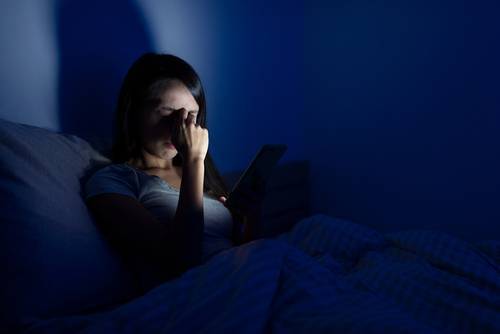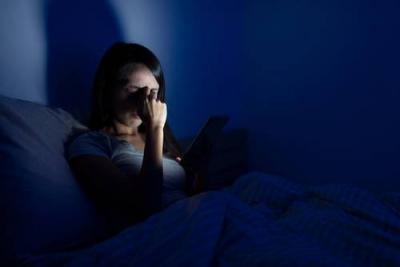Sleeping next to your smartphone is a great way to ensure you won’t miss any calls, text messages, or emails. However, it is advisable to keep it away from you due to its health risks that could affect you without your knowledge. If you place your phone near your head, under your pillow, or on your bedside table, you might want to find another spot for it during the night.
The closer your phone is to you at night, the greater its negative impact on your health. According to experts, your phone should be at least three feet away from your bed to reduce exposure to the radiofrequency energy it emits. If you need to use your phone as an alarm, turn on airplane mode to prevent it from sending or receiving calls and text messages while you sleep with it nearby. During the day, carry your phone in your wallet or bag instead of your pocket to avoid higher levels of radiofrequency radiation exposure from both.
What is the danger lurking in smartphones? Mobile phones emit high levels of radiofrequency energy, which is a form of radiation that occurs when phones connect to communication network towers to provide call services. In theory, this radiation is supposed to be harmless; however, having a phone next to your head regularly may cause headaches and sleeping difficulties. The risk of exposure to these radio waves is significantly higher when the phone is near your head than when it is a few feet away. Even when the phone is next to you without being used, it remains connected to the network, which means it still emits even a small amount of harmful radiation.
Additionally, if you sleep while browsing your smartphone or place it next to you in bed, you might roll over onto it during the night, which means it may not receive adequate airflow and could quickly heat up, potentially leading to battery damage or even explosion and fire. Furthermore, smartphones with large screens emit what is known as blue light, which tricks your brain into thinking it is still daytime. As you prepare to fall asleep, the brain secretes melatonin, the hormone responsible for regulating sleep cycles and the body’s biological clock. However, blue light affects these levels and disrupts your sleep pattern, causing headaches, impaired vision, and restless nights.




